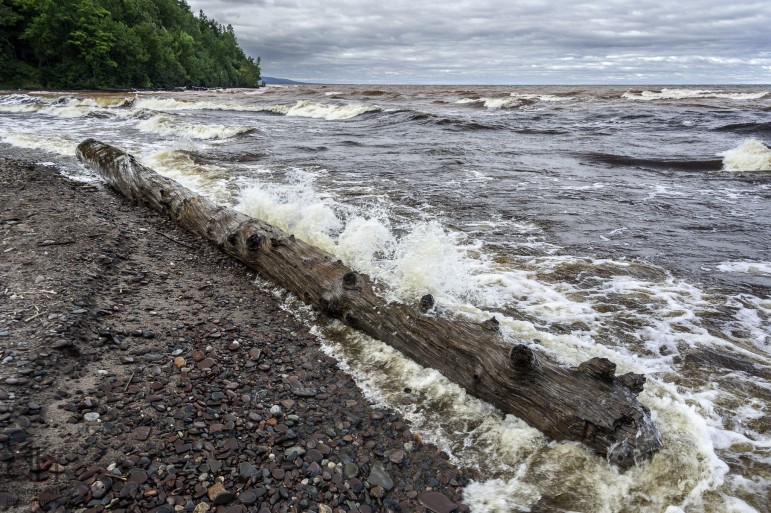
Lake Superior temperatures have been increasing about 2 degrees Fahrenheit per decade. Image: Chris Heald, Flickr
New research suggests that the world’s lakes are experiencing dramatic temperature shifts due to climate change. So, how will our own Great Lakes fare in a warming climate? Current State spoke to John Lenters, a researcher at the water science consulting firm LimnoTech to find out.
When you think about global warming, melting ice caps probably come to mind, or an image of a polar bear adrift. But the reality of climate change hits much closer to home. Recent research suggests that the world’s lakes are warming much more rapidly than the ocean. That includes several of the Great Lakes.
To learn more about how climate change is impacting our state’s defining features, Current State talks with LimnoTech researcher John Lenters.
This story appeared on WKAR’s Current State and is republished here with permission.
There are 2 points that are bothersome with John’s discussion on Lake Superior. I can readily agree that the surface waters may be warming ever so slowly, but his comment on the warming of the bottom waters I can not understand. The Lake totally mixes in the spring when the water temperature is 4 degrees C when it is the most dense. As the warmer months progress, the surface waters will warm and hence become less dense and float above the colder, more dense 4 degree water of the bottom. I have never seen a temperature depth profile in late summer where Lake Superior bottom waters are above 4 degrees C.
Secondly, the warming of the surface waters of Lake Superior is not the most important problem as related to increases in algal abundance. The limiting requirement for increased algal growth is dependent upon an increase in the limiting nutrient, phosphorus. At the present, the phosphorus (P) concentrations in the open waters of the Lake are extremely low, 2-3 ug/L. This is where the emphasis should placed, make sure the P input from the watershed is controlled.
Regarding the comment: “Science has never agreed climate change was as real as they agree smoking causes cancer . . .”
Apparently, Scientific American (among others) would beg to differ. In a March 2014 article entitled, “Climate Risks as Conclusive as Link between Smoking and Lung Cancer,” they cite the American Association for the Advancement of Science (AAAS) report that makes exactly that point. AAAS has been a respected voice of the scientific community in the U.S. since 1848. I think I’ll take their word for it.
This article is criminal level exaggeration. Shame !
Science has never agreed climate change was as real as they agree smoking causes cancer and now only another 35 more years of debate, disbelief and climate action failure is certain and unstoppable.